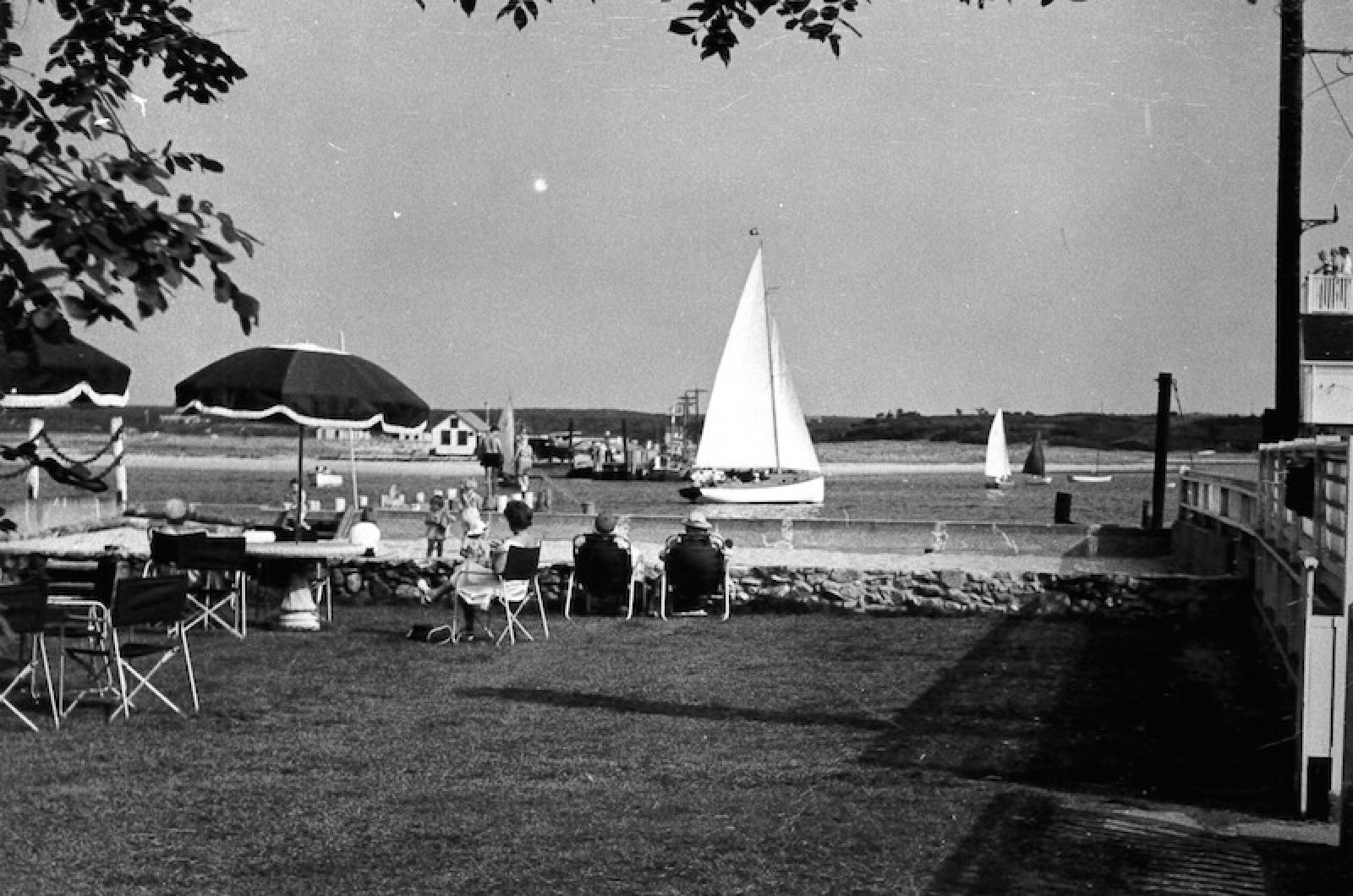From the July 16, 1935 edition of the Vineyard Gazette:
There is a furious urgency about July which is lost sight of only because the month is warm and sometimes languorous. Mankind takes his leisure, and therefore thinks of this as a leisurely month, but it is not. The truth of the matter is to be found in the speed, the necessitous spurring on the cycle of nature out of doors. The forests are dark with green which has come into full growth suddenly and has only a little while to accomplish a great deal; the nights are filled with insects which have only a little while in which to complete their affairs; the early mornings are ushered in with the singing of birds which is to be heard in too few dawns, because all the dawns of summer are too few.
Summer is our briefest season. Moreover it is diluted at the beginning with the least pleasant legacy of spring, the cold rains and storms, and at the end of the forebodings of autumn. Pure summer, rich, green, and teeming, comes in hardly more than a gilded day, and is gone again. No wonder the pace of the busy living things is quickened.
The business hours in the marts of trade are set by convenience or convention; but the business hours of bees and birds, of flowering plants and trees, of beetles and ants, are a dispensation of providence which cannot be extended a single hour by all the sanctions of congresses and conferences. In the towns one little notices the haste and little feels the ominous quality of July’s brevity; but alone in the woods, or alone in the hillside pastures at night, the need of the world comes crowding in upon the senses. July is here, July is passing. It must be made to serve. Furious is its urgency, and the leisure of mankind has no shadow or echo in the world of all outdoors.

In this, the second summer of ragweed control, those in charge of the drive against the noxious weed are greatly encouraged because last year’s efforts have shown results.
Another drive this year, and another crop prevented from seeding; continued care by house-holders and farmers, and the time of ragweed scarcity comes quickly. The abundance of the weed has been due to great quantities permitted to grow and go to seed at our very doors. An attack upon it, systematically, for two seasons, and we will have made a real victory.
The attempt to control ragweed has already proved a fine thing for the Vineyard. Sufferers from hay fever have been relieved as never before, and word has gone abroad that the Vineyard is becoming a safe retreat from the suffering that ragweed causes. In advertising alone, the effort is worth far more than it costs in time and money. It is good, too, to have the Island a pioneer, taking the lead in a cause which science believes well conceived, and closely watched by authorities everywhere to see what the success will be.

The crew of the Vineyard Haven Yacht Club, Kingman Brewster and Bud Robie, have brought honor to the Island as well as to themselves and their club, in the winning of the Prince of Wales Cup. There must be something about seamanship of Tisbury skippers, for cups and trophies have had a way, in late years, of finding their way to the Tisbury yacht club. The example set by Cox and Jewett is evidently to be followed by those who come in their wake, and congratulations are in order. Already it seems that the Vineyard Haven Yacht Club must have a record in the number of championships its skippers have won; certainly no other club so young can show comparable racing distinction.
Such distinction is all in the Vineyard tradition, and Islanders who have accomplished important things in different craft and on more distant seas are rejoiced to see summer residents carrying the Vineyard’s name to the high places if yacht racing annals.

Summer rains, such as the downpour of yesterday, remind the modern generation of the importance of attics. Rain is important to the farmer, and fir certain practical uses; but it falls short of doing its duty by the vacationer unless he has an attic to which he may retire to look through boxes of letters, or read old books. The rafters overhead, the cobwebs all about, and the dry, ancient smells, give point to a day indoors, and the man who has an attic with these things in it is seldom if ever found pacing up and down a living room, waiting for the rain to stop.
Cellars are convenient, but they do not equal attics in summer or on rainy days. That is one of the priceless advantages of old houses - if they do not have full-sized attics, the have spaces under the eves, and various poke-holes into which someone’s forefathers stored broken spinning wheels, piles of tracts and magazines, trunks and chests studded with brass nails, pictures and picture frames, chunks of logwood used for making dyes, prizes brought home from alongshore, trophies which once had a day in the parlor, and all that sort of thing. The attic is of the utmost importance on rainy vacation days.
Compiled by Hilary Wall
library@mvgazette.com





Comments
Comment policy »